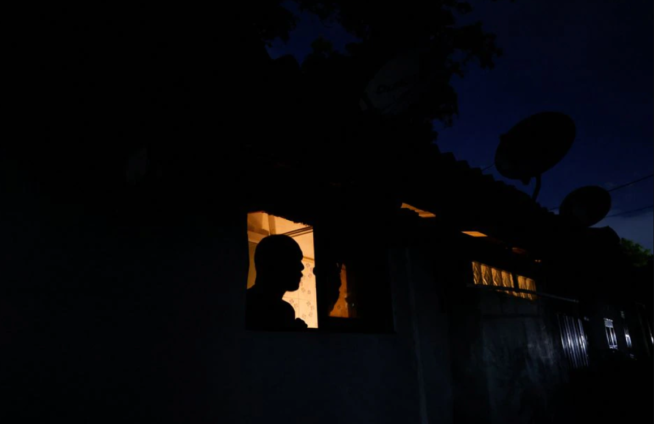
Audio By Carbonatix
The Institute for Energy Security (IES) has cautioned that the government may soon be forced to increase its import of electricity to compensate for reduced local energy production.
This follows the shutdown of Sunon Asogli Power’s 560 MW power plant due to the Electricity Company of Ghana’s (ECG) inability to meet its payment obligations.
According to IES, Ghana had already been importing power for the past four weeks prior to the shutdown, a situation that could worsen if the plant remains offline.
The financial difficulties faced by ECG could further destabilize the nation's power supply.
Speaking in an interview with Citi FM, IES Executive Director, Nana Amoasi VII, emphasized the gravity of the situation.
He pointed out that Ghana’s reliance on power imports, coupled with the Sunon Asogli shutdown, poses a serious threat to energy security.
Nana Amoasi VII called for immediate and sustainable solutions to secure the country’s energy sector, urging the government to address the mounting debt owed to Independent Power Producers (IPPs) and ensure consistent electricity production.
The IES also noted that if the current financial issues are not resolved, Ghana may face a more severe energy crisis, potentially driving up costs for both the government and consumers.
“Over the last four weeks, we have been importing power, particularly from Cote d’Ivoire. We were importing power at the time that Sunon Asogli was generating, and daily, they do more than 400 megawatts. Just that we have not realised the impact or seen the impact of the shutdown because of the weather."
“But now that we are getting out of the wet weather, the impact may be felt in the coming days. You will remember that last year around December 4th, they [Sunon Asogli] shutdown for the first time and the ministry intervened swiftly, but this time around they are choosing to start with an importation [of power] and probably go to the deck and meet Sunon Asogli."
“But I think we must start from somewhere, but I don’t believe in two, three months, ECG can address their problems. It requires more of an investment into their operation, more competence as well, and less political interference to address some of these issues.”
Latest Stories
-
Some OMCs reduce fuel prices; petrol going for GH¢10.86, diesel GH¢11.96
43 minutes -
Trump says health is ‘perfect’ amid ageing concerns
1 hour -
China’s BYD set to overtake Tesla as world’s top EV seller
1 hour -
Joy FM’s iconic 90’s Jam returns tonight: Bigger, better, and packed with nostalgia
2 hours -
Uproar as UG fees skyrocket by over 25% for 2025/2026 academic year
3 hours -
Japan PM joins fight for more female toilets in parliament
4 hours -
Ga Mantse declares war on fishing industry child labour
4 hours -
Adom FM’s ‘Strictly Highlife’ lights up La Palm with rhythm and nostalgia in unforgettable experience
5 hours -
OMCs slash fuel prices as cedi gains
6 hours -
Around 40 dead in Swiss ski resort bar fire, police say
7 hours -
AFCON 2025: Aubameyang and Nsue make history among oldest goalscorers
8 hours -
AFCON 2025: How Kwesi Appiah’s Sudan qualified for round of 16 without scoring any goal
9 hours -
Ghana is rising again – Mahama declares
9 hours -
Firefighters subdue blaze at Accra’s Tudu, officials warn of busy fire season ahead
10 hours -
Luv FM’s Family Party In The Park ends in grand style at Rattray park
10 hours

